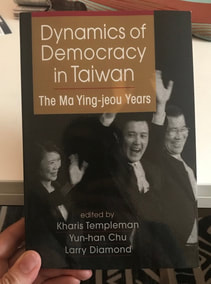 It exists! In paperback!
It exists! In paperback! This is our attempt at a deep dive into various aspects of Ma-era politics, including party politics and elections, political institutions and governance challenges, trends in public opinion and democratic values, civil society and social movements, and cross-Strait and US-Taiwan-PRC relations. This look at the Ma years parallels somewhat our earlier book on the Chen Shui-bian era.
We were fortunate to be able to assemble a great group of contributors for this book--about half based in Taiwan and half abroad--who offer a variety of perspectives on the politics of the Ma years. The scholarship here draws on years of conferences, papers, and conversations that started even before President Ma left office, including with some of the key participants in and outside of the Ma administration. (Chapter 15, for instance, is by Szu-yin Ho, who served for two years as deputy Secretary-General of Ma's National Security Council.) This sort of cross-national collaboration is less common than it should be (in part because it's logistically hard to pull off!), but I am convinced the final product is much stronger for it.
Among the many great contributions here, let me especially highlight three that provide original, provocative answers to important questions about the Ma era:
- In Chapter 3, Austin Wang explains how Tsai Ing-wen emerged from obscurity as unrivaled leader of the DPP during its years in opposition, despite having never previously held elected office;
- In Chapter 4, Nathan Batto shows how President Ma's recurrent troubles with the legislature had more to do with deep divides within the ruling KMT than they did with the obstructionist tactics of the opposition DPP and with Ma's party rival, Speaker Wang Jin-pyng;
- In Chapter 7, Isaac Shih-hao Huang and Shing-yuan Sheng demonstrate that having a majority in the Legislative Yuan does not mean a party has complete control over the Legislative Yuan, and that the legislature's decentralized law-making process makes it challenging for the executive branch to get high-priority legislation approved, whether or not the president's party holds a majority.
For more thoughts on those issues and a broader overview of the book, check out the introductory chapter, which is available ungated from the publisher's website.
- The Dynamics of Democracy During the Ma Ying-jeou Years, by Kharis Templeman, Yun-han Chu, and Larry Diamond
- The 2012 Elections, by Shelley Rigger
- The DPP in Opposition, by Austin Horng-en Wang
- The KMT in Power, by Nathan F. Batto
- The Party System Before and After the 2016 Elections, by Kharis Templeman
- The Challenges of Governance, by Yun-han Chu and Yu-tzung Chang
- Legislative Politics, by Isaac Shih-hao Huang and Shing-yuan Sheng
- Watchdog Institutions, by Christian Göbel
- Managing the Economy, by Pei-shan Lee
- Assessing Support for Democracy, by Yu-tzung Chang and Yun-han Chu
- Trends in Public Opinion, by Ching-hsin Yu
- The Impact of Social Movements, by Dafydd Fell
- Who are the Protestors? Why Are They Protesting? by Min-hua Huang and Mark Weatherall
- Social Media and Cyber-Mobilization, by Eric Yu and Jia-hsin Yu
- Cross-Strait Relations, by Szu-yin Ho
- In the Shadow of Great-Power Rivalry, by Dean P. Chen
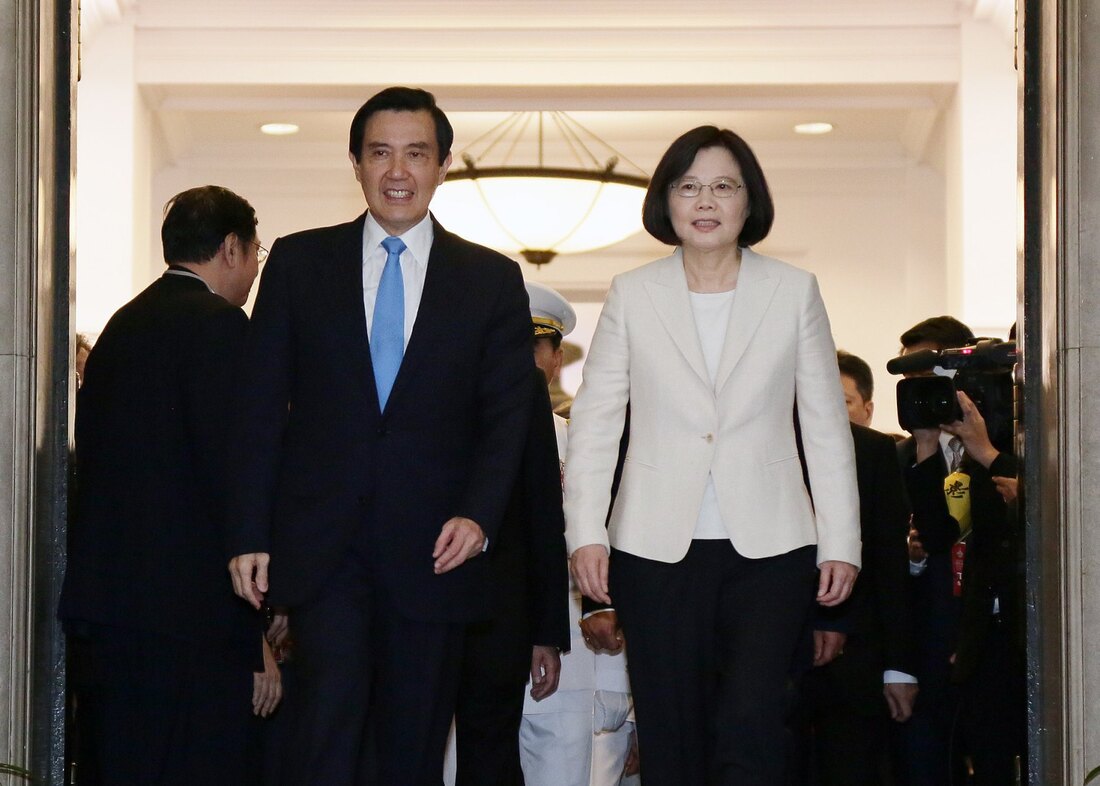
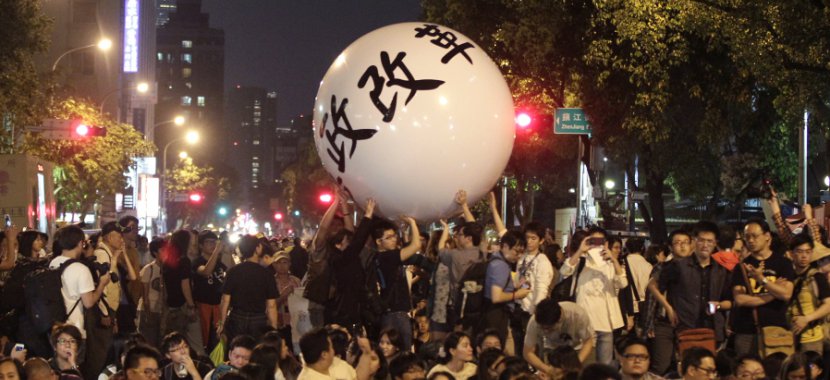
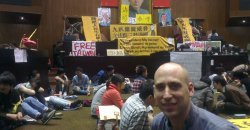

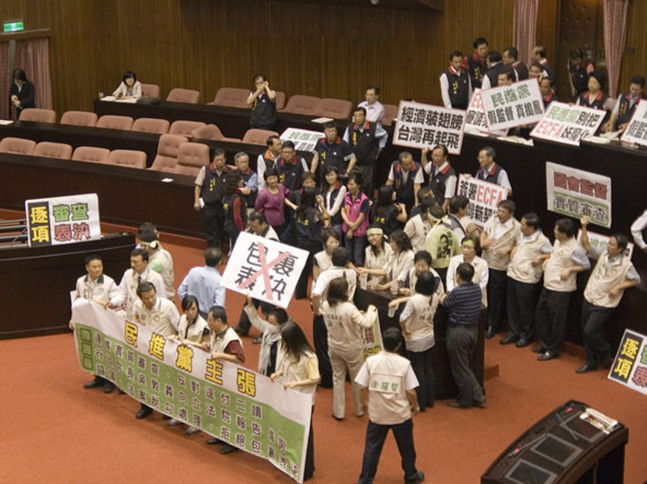
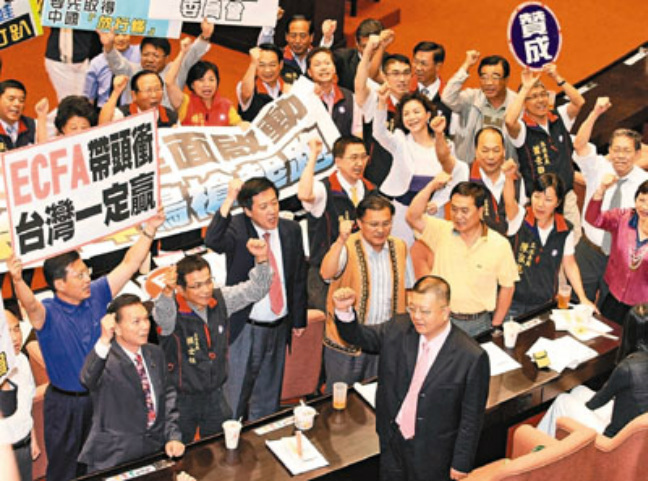
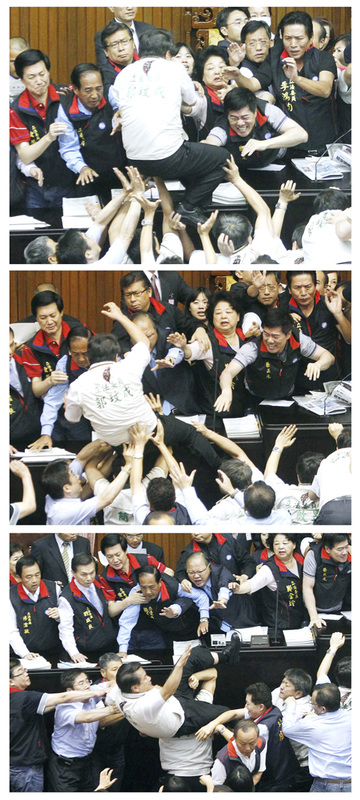
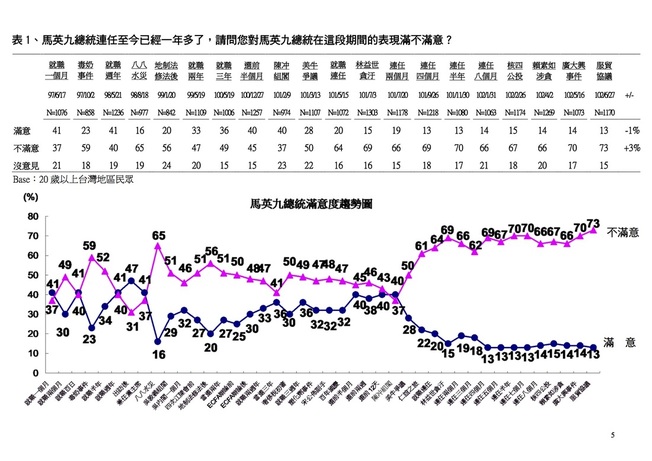
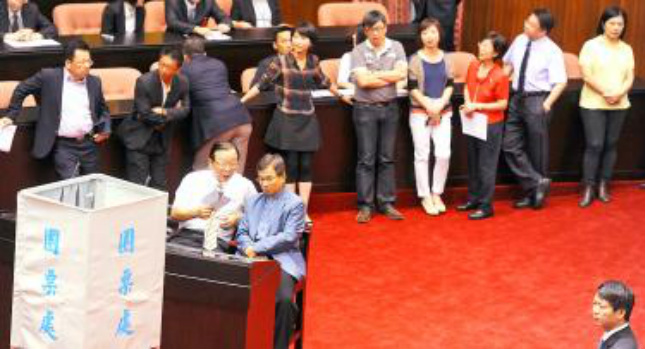
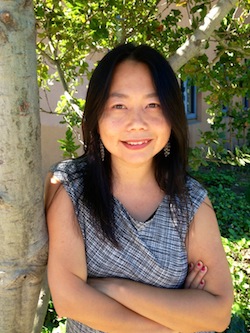
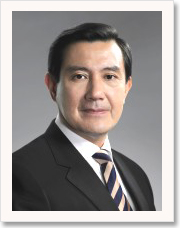
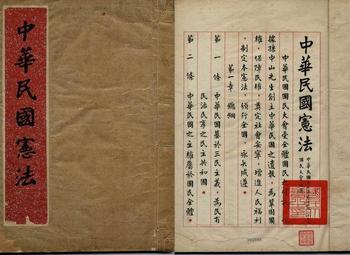
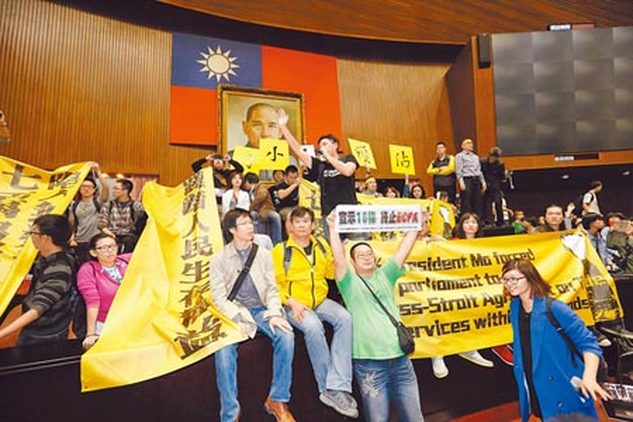
 RSS Feed
RSS Feed
